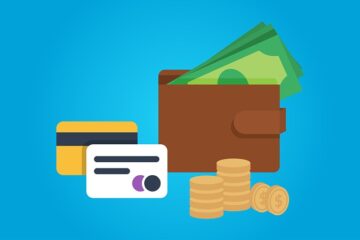Cryptocurrencies have revolutionized the way we think about money and financial transactions. They offer a decentralized and secure way to conduct transactions and store value. However, the risks of crypto hacks have become increasingly apparent as the value and popularity of cryptocurrencies have grown. In this blog, we will discuss the risks of crypto hacks and how to protect your digital assets.
What is a Crypto Hack?

A crypto hack is when someone gains unauthorized access to a cryptocurrency wallet or exchange and steals the digital assets stored within. Hackers use various techniques to gain access to wallets and exchanges, including phishing, malware, and social engineering.
Risks of Crypto Hacks
-
Loss of Funds
The most significant risk of crypto hacks is the loss of funds. Once a hacker gains access to a wallet or exchange, they can transfer the digital assets to another account or wallet. This can result in significant financial losses for the owner of the wallet or exchange.
-
Irreversible Transactions
Unlike traditional financial transactions, cryptocurrency transactions are irreversible. This means that once a transaction is made, it cannot be undone. If a hacker transfers your digital assets to another wallet or exchange, it may be challenging or impossible to recover them.
-
Lack of Regulation
Cryptocurrencies are decentralized and not regulated by any government or financial institution. While this offers many benefits, it also means that there is no protection or recourse for victims of crypto hacks. This can make it challenging to recover stolen funds or hold the responsible party accountable.
-
Complexity of Wallets and Exchanges
Crypto wallets and exchanges can be complex and challenging to use. This can make it easy for hackers to take advantage of vulnerabilities and gain access to digital assets. Additionally, the decentralized nature of cryptocurrencies means that there is no centralized authority to enforce security standards or protocols.
Protecting Your Digital Assets
-
Use a Hardware Wallet
Hardware wallets, such as Trezor and Ledger, offer the most secure way to store your digital assets. They are small devices that store your private keys offline, preventing hackers from gaining access to them. Hardware wallets are not connected to the internet, making them less vulnerable to hacking.
-
Use Strong Passwords
Using strong passwords is critical for protecting your digital assets. Avoid using common words or phrases and use a combination of uppercase and lowercase letters, numbers, and symbols. Additionally, use two-factor authentication to add an extra layer of security to your wallets and exchanges.
-
Keep Your Software Up-to-Date
Keeping your wallet and exchange software up-to-date is crucial for protecting your digital assets. Software updates often include security patches and bug fixes that address vulnerabilities that hackers may exploit.
-
Be Cautious of Phishing Attacks
Phishing attacks are one of the most common ways hackers gain access to digital assets. Be cautious of emails or messages that ask for your login credentials or personal information. Additionally, be wary of suspicious links or attachments in emails or messages.
-
Use Reputable Exchanges
Using reputable exchanges is crucial for protecting your digital assets. Research exchanges before using them and ensure that they have robust security measures in place. Additionally, never leave your digital assets on an exchange for an extended period.
Conclusion
Crypto hacks are a significant risk for anyone using cryptocurrencies. The risks include the loss of funds, irreversible transactions, lack of regulation, and the complexity of wallets and exchanges. To protect your digital assets, use a hardware wallet, use strong passwords, keep your software up-to-date, be cautious of phishing attacks, and use reputable exchanges. By following these guidelines, you can reduce the risk of crypto hacks and invest in cryptocurrencies with confidence.


